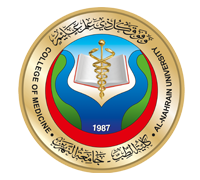|
Vol. 20 Issue 2 July - December / 2022
Published on website | Date : 2022-12-28 13:16:54
Maternal Serum Alpha Feto Protein Level May Predict Morbidly Adherent Placenta in Women with Placenta PreviaSarah S. Hassan, Ayla K. GhalibAbstractBackground: In situations of a morbidly adherent placenta, studies have shown that maternal serum alfa feto protein (AFP) is clinically high.
Objective: To examine the association of morbidly adherent placenta (MAP) in pregnant women with placenta previa (PP) and their serum AFP biomarker. Methods: A prospective observational study that was conducted in the Department of Obstetrics and Gynecology at Azadi Teaching Hospital, Kirkuk, Iraq during the period from Feb. till Nov. 2019. It included 82 pregnant women those between 14-20 weeks of gestation with singleton pregnancy, viable fetus, and diagnosed with low lying placenta, with and without vaginal bleeding. A blood sample from all women was taken to investigate for serum AFP level after confirming the diagnosis of low-lying placenta by early abdominal ultrasound (U/S) scan. All the enrolled pregnant women were followed by Doppler U/S at gestational age 28-32 weeks, underwent targeted screening for MAP and were divided into two groups according to the status of placenta: MAP group included 11 pregnant women and PP group alone included 71 pregnant women. Results: In this study, MAP was diagnosed in 13.4% of cases. Mean of serum AFP biomarker in women with MAP was significantly higher than that in women with PP. Serum AFP biomarker in early pregnancy >200 ng/ml is predictive for diagnosis of MAP in late pregnancy. Conclusion: Maternal serum AFP biomarker may play an important role at early pregnancy in prediction of placental adherence at late pregnancy in cases of early low-lying placenta. Keywords: Morbidly adherent placenta, alpha feto protein, previa, pregnancy, Iraq Citation: Hassan SS, Ghalib AK. Maternal serum alpha feto protein level may predict morbidly adherent placenta in women with placenta previa. Iraqi JMS. 2022; 20(2): 278-285. doi: 10.22578/IJMS.20.2.16 Full-text |
Some tools below are only available to our subscribers or users with an online account |
 |
Please wait until the current process completes ... |



